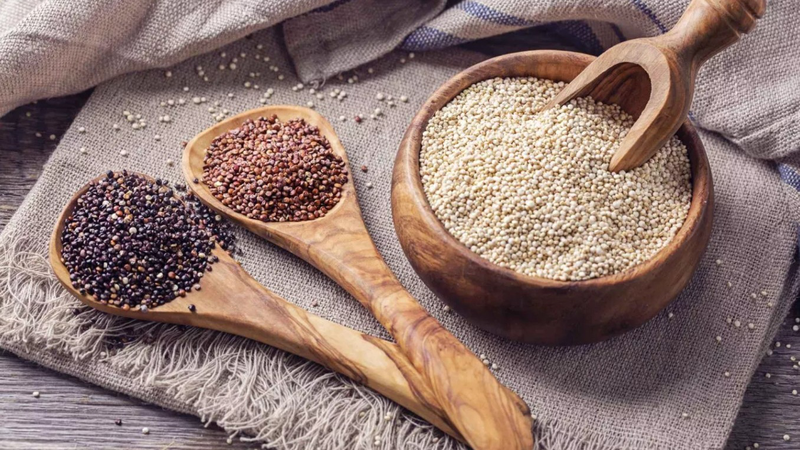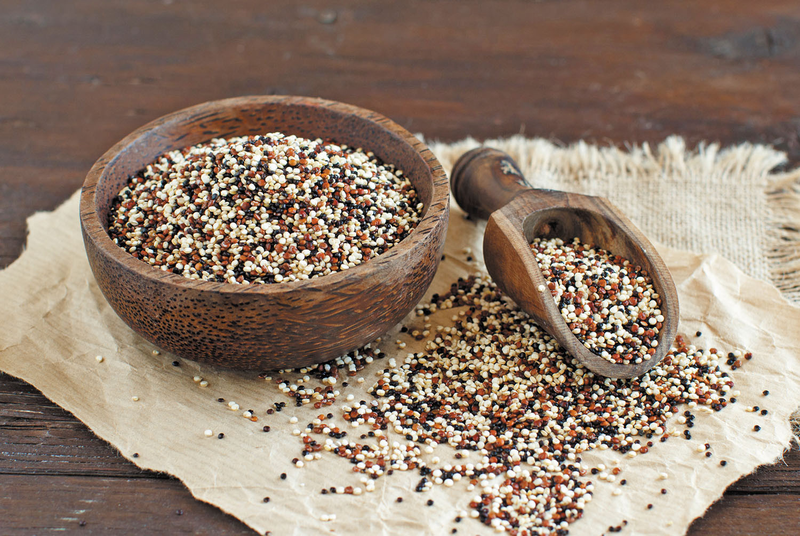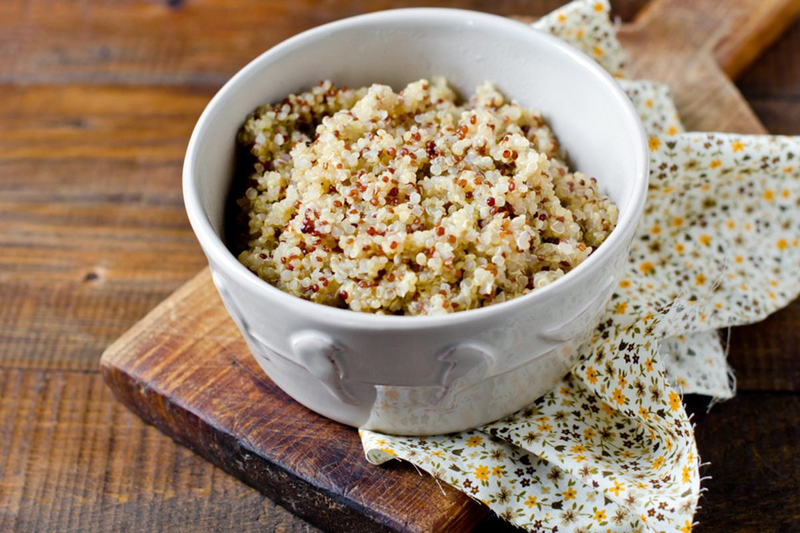Quinoa is one of the most nutritious whole grains and is very good for your health. In today’s article, we will learn about the nutritional composition of Quinoa as well as the uses of this grain.
The nutritional composition of Quinoa is quite diverse, including protein, fat, vitamins and minerals. To know more about the nutritional value of this whole grain, follow the article below.
General information about Quinoa
Quinoa is often described by many nutritionists as a “superfood” or “super grain”, a popular grain with people who are conscious of protecting and taking care of their health. What are the nutritional composition of Quinoa? Quinoa contains a large amount of protein, fiber along with many essential vitamins and minerals. In addition to having high nutritional value, Quinoa is also gluten-free and is recommended for people on a gluten-free diet.
Quinoa seeds are rich in nutrients, so they are often used as a substitute for rice. When cooked, Quinoa seeds have a certain softness and fluffiness, a light aroma and a slightly fatty taste that is quite attractive. In addition, Quinoa can also be used in the form of flour for the production of fibers such as pasta or bread.

Quinoa seeds are proven to be very nutritious and beneficial for health.
Nutritional composition of Quinoa
When learning about Quinoa, one of the things that consumers are most interested in is the nutritional composition of Quinoa. Cooked Quinoa consists of about 71.6% water, 21.3% carbohydrates, 4.4% protein and 1.92% fat. In terms of calories, each cup of Quinoa (about 185g) can provide the body with about 222 calories – a relatively low amount of calories compared to some other grains. Specifically, the nutritional composition of Quinoa in about 100g of cooked Quinoa includes:
- 120 calories;
- 72% water;
- 4.4g protein;
- 21.3g carbs;
- 0.9g sugar;
- 2.8g fiber;
- 1.9g fat.
In addition, Quinoa seeds also contain many antioxidants, vitamins and minerals such as magnesium, iron, zinc, …, even more than regular grains, so adding Quinoa to meals is highly recommended. Some prominent minerals in the nutritional composition of Quinoa seeds are:
- Manganese: Found in many whole grains, especially Quinoa. This micronutrient is essential and important for metabolism, growth and development of the body.
- Phosphorus: Supports bone and joint health and maintains tissues in the body.
- Copper: Very important for cardiovascular health but is often lacking in the daily diet of many people.
- Folate: One of the B vitamins important for cell function and tissue development, so it is very necessary for pregnant women.
- Iron: Supports oxygen transport in red blood cells and prevents anemia.
- Zinc: Participates in many chemical reactions in the body.

The nutritional composition of Quinoa seeds is outstanding with high vitamin and mineral content.
In addition to vitamins and minerals, Quinoa is also known as one of the few whole grains that contain essential plant compounds for the body, typically:
- Saponins: Plant glycosides that protect Quinoa against insects and other dangers. This substance gives Quinoa seeds a bitter taste and is often removed by soaking, washing or roasting before processing.
- Quercetin: A powerful polyphenol antioxidant that protects the body against many dangerous diseases such as heart disease, osteoporosis and some forms of cancer.
- Kaempferol: An antioxidant that helps reduce the risk of chronic diseases, including cancer.
- Squalene: A precursor of steroids that acts similarly to antioxidants in the body.
- Phytic acid: An antinutrient that can reduce the absorption of minerals, such as iron and zinc. Phytic acid can be reduced by soaking or sprouting Quinoa seeds before cooking.

Quinoa is also a grain rich in plant compounds and antioxidants.
Thus, the nutritional composition of Quinoa is quite diverse and has many health benefits. However, like many other whole grains, Quinoa also contains toxic substances such as saponins, oxalates, etc., so it needs to be soaked and washed thoroughly before cooking.
What are the health benefits of Quinoa?
As you know, the nutritional composition of Quinoa is very nutritious and rich in minerals as well as plant compounds, so this is a grain that should be added to the daily diet. Some studies show that Quinoa can increase the body’s total nutrient intake, reduce blood sugar levels and some benefits such as:
Control blood sugar
People with type 2 diabetes cannot produce insulin effectively, causing blood sugar levels to always be high, leading to many dangerous complications. Meanwhile, refined carbs can increase blood sugar quickly, easily causing heart disease, so choosing to use whole grains, specifically Quinoa, is a good choice.
Studies have also shown that a diet with Quinoa helps reduce blood cholesterol, triglycerides and blood sugar levels are also controlled at a more stable level. Therefore, diabetics can eat Quinoa instead of regular rice and white rice.
Weight loss support
Quinoa has many advantages such as low calories, rich in nutrients, no refined carbs, etc., so it is one of the foods that should be included in the diet. The protein content in Quinoa is very high, much higher than similar foods such as rice, corn or whole wheat, so it helps the body promote metabolism, create a feeling of fullness for a long time, prevent obesity and some related health problems. The fiber in Quinoa is also very important for people who are losing weight because it reduces cravings, enhances digestion and promotes the consumption of more calories.

Adding Quinoa to your diet creates a feeling of fullness for longer and aids in weight loss and fat loss.
Effective iron supplementation
Iron is an important mineral that helps red blood cells stay healthy, so iron supplementation is very important. When lacking iron, the body is susceptible to anemia, leading to dizziness when standing up suddenly, fatigue, lack of energy, etc. In addition to foods such as beef, dark green leafy vegetables, etc., you can also supplement Quinoa to increase the amount of iron needed for a healthy body.
In general, the nutritional composition of Quinoa is very good for health because of the abundance and diversity of essential nutrients. To take full advantage of the benefits of Quinoa, you should prepare it properly by soaking, washing, roasting and cooking it properly.





